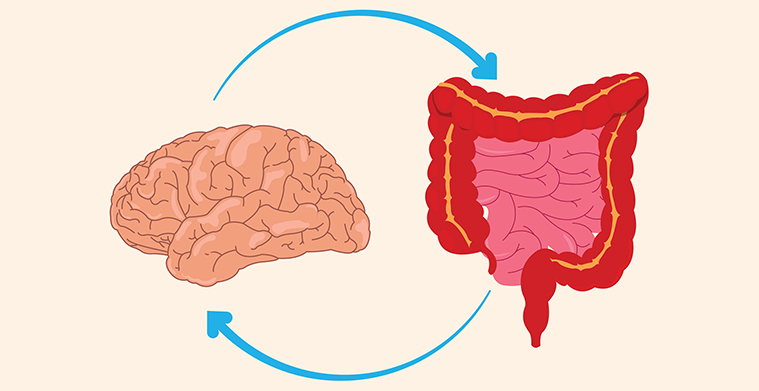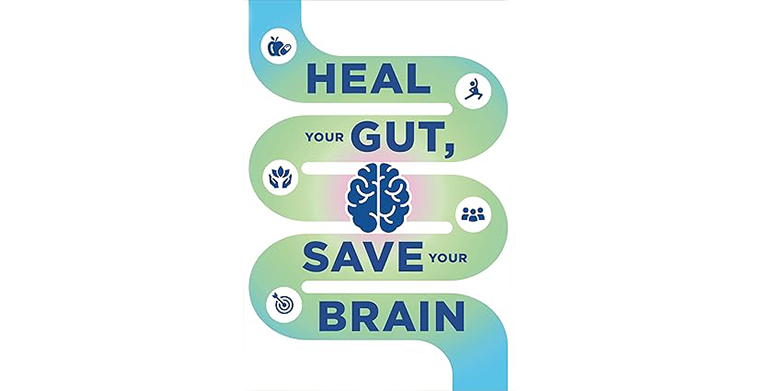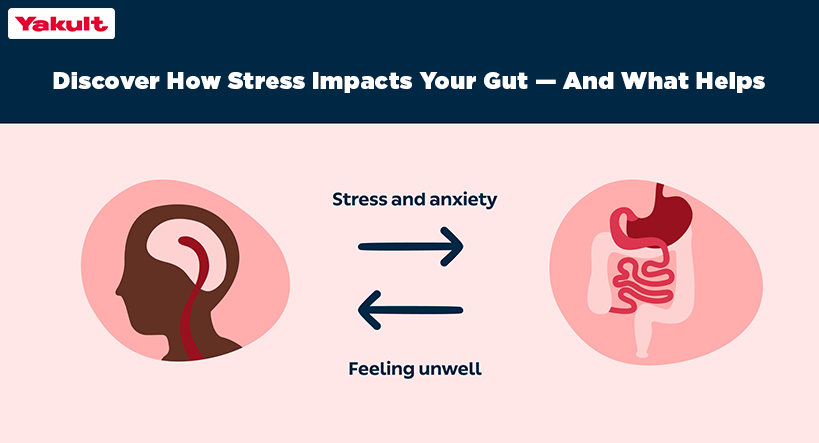Ever had butterflies in your stomach before a big meeting? Or felt nauseous when you’re overwhelmed? That’s no coincidence. Your gut and brain are deeply connected, and stress can wreak havoc on your digestive system. When you’re under stress, your brain signals your autonomic nervous system to prepare for a fight-or-flight response.
Let’s talk about the world of gut-brain connection, where your emotion and digestion are tightly linked. Understanding this relationship can be the first step to fix the gut issues you have been silently tolerating.
Understanding the Gut-Brain Axis

The gut-brain axis is a link or a highway between your gut and your brain. This is a two-way connection system and is powered by nerves, hormones, and immune signals. And it’s always active. When you’re stressed, signals from the brain travel down from the nerve and tell your gut to slow down or react — cue the cramps, bloating, or sudden bathroom trips. Also, your gut has over 100 million neurons, that’s why it’s nicknamed as second-brain. It produces neurotransmitters like serotonin, yes, the same one responsible for happiness. So, if your gut’s off, your mood probably is, too.
How Stress Impacts Gut Health
Disrupts Gut Microbiota Balance
Stress alters the composition of gut bacteria, reducing beneficial microbes and encouraging the growth of harmful ones. This imbalance can lead to digestive issues, inflammation, and weakened immunity.
Increases Gut Permeability (“Leaky Gut”)
Chronic stress weakens the gut lining, allowing toxins and undigested food particles to pass into the bloodstream. This triggers inflammation and may contribute to autoimmune conditions.
Slows or Speeds Up Digestion
Stress can either slow down digestion (causing constipation) or speed it up (causing diarrhea). This happens due to disrupted signals between the brain and gut.
Triggers Inflammation
Elevated stress hormones like cortisol can increase inflammation in the gut, worsening conditions such as IBS, gastritis, and ulcerative colitis.
Impacts Nutrient Absorption
Under stress, your gut may struggle to properly absorb nutrients, leading to deficiencies that affect your energy levels, skin, and overall well-being.
Reduces Gut Motility and Blood Flow
Stress diverts blood away from the digestive system, reducing gut movement (motility) and interfering with the normal digestive process.
What You Can Do to Heal Your Gut and Reduce Stress

Dietary changes for a happier gut: Healthy dietary changes always makes your gut happy. Include prebiotics and probiotics for a healthier gut. Feed your good bacteria with prebiotics and load up on probiotics like Yakult, yogurt, kefir. You can also include fiber-rich foods like beans, lentils, and whole grains, which can sweep your gut and clean it and keep the things moving. Drink at least 2-3 liters of water daily to help in digestion and flush out the toxins.
Lifestyle changes that actually work: Include regular exercise on your routine. It not only burns out your calories but also reduces stress hormones like cortisol. Always prefer a good quality of sleep as sleep repairs your gut and keeps your hormones balanced.
Mindful and Mental health: Simple practices like 10 minute meditation, deep breathing before meals, journaling your food or mood, gives your gut a good balance, as mindfulness lowers cortisol levels, eases inflammation, and supports gut flora.
Simple practices like 10 minute meditation, deep breathing before meals, journaling your food or mood, gives your gut a good balance, as mindfulness lowers cortisol levels, eases inflammation, and supports gut flora.
